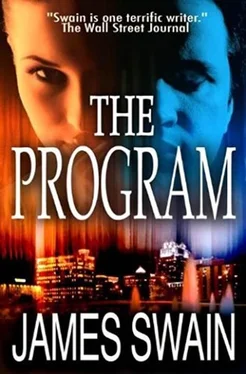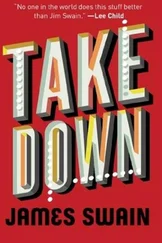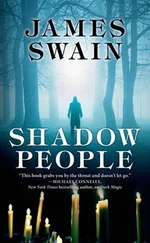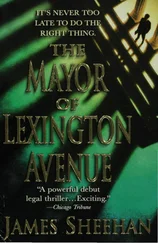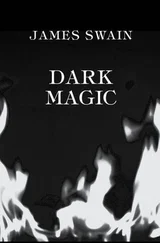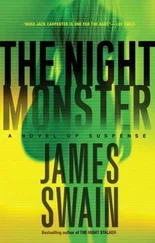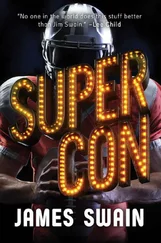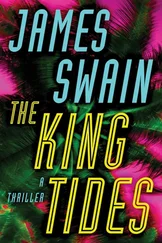“Why’d you have to shoot him so many times?” Eric said, seeing Linderman. “He didn’t deserve to die like some dog.”
Linderman pulled Eric across the kitchen to the open back door, and pointed at the female FBI agent lying on the ground. “That’s why I shot your brother,” he said.
“Is she dead?”
“Yes. Now, do you still want to call a lawyer, or would you rather make a deal?”
Eric turned away from the door. He was smart enough to know that he could be charged as an accessory to his brother’s crimes, and might spend the rest of his life in prison for killing an FBI agent.
“What do you want from me?” Eric asked.
“I want to know about the calls you’ve been making on your cell phone,” Linderman said. “If you cooperate, we’ll say you weren’t here when the shooting happened.”
“I won’t get charged with this?”
“That’s right.”
“Will Randy get all the blame?”
“Yes, Randy will get all the blame.”
“Is that a promise?”
“Yes.”
“Let me hear you say it.”
“It’s a promise. Randy will get all the blame for what happened.”
Eric glanced over his shoulder at his brother’s corpse. His look of sorrow had been replaced by outright hostility, and Linderman could only guess at the tortured relationship the two brothers had shared.
“You’ve got a deal,” Eric said.
Eric sat on a sagging couch in the living room. Linderman sat directly across from their suspect, while Wood stood beside him.
Both FBI agents gave Eric hostile stares. It was an intimidating tactic used during interrogations that often scared suspects into telling the truth.
“I want to hear about the nightly phone calls you’ve been making to Broward County for the past twelve months,” Linderman said.
“I ain’t been making any calls to Broward,” Eric replied.
“I’ve got a phone log from Verizon that says otherwise,” Linderman said.
“You’ve got a what?”
“A phone log. It shows the calls you’ve been making. There are several hundred to Broward county area codes.”
“You really don’t know what’s going on, do you?” Eric replied.
Linderman pulled up the chair a little closer. He’d learned never to tell a suspect what he did, or didn’t know during an interrogation.
“There’s a bag in the cab of my pickup. That’ll explain things,” Eric said.
Wood went outside and got the bag, which he brought into the house. Inside the bag were half a dozen Nokia Cell phones. Then it clicked what Eric was doing.
“You’re renting cell phones to inmates inside Starke Prison,” Linderman said.
“That’s right,” Eric said.
“Who’s getting them?”
“I’m not really sure.”
“Stop lying, or our deal is off.”
Eric shifted uncomfortably. “All right. I deal with one inmate. His name is Raul Martinez, but everyone calls him Thunder. I rent the cell phones to him, and he doles them out to different inmates who he has agreements with. I don’t ask questions because it’s none of my fucking business. Thunder gives me the phones back every morning when I end my shift, and I bring them home, and charge them up. That’s the deal. You want to know who’s calling from Broward, talk to Thunder.”
Taking his iPhone from his pocket, Linderman got onto the Internet, and went to the FBI’s computerized index of criminal justice information in Clarksburg, West Virginia. He punched in a six-digit password to gain access, then went to the criminal record history information section, and looked for Raul “Thunder” Martinez on its search engine. Within seconds, a rap sheet and mug shot appeared on the iPhone’s screen. Martinez was from the Little Havana section of Miami, and had run with a street gang called the Latin Kings. His mug shot showed a man with no neck and a mouth filled with gold teeth.
Linderman signed off from the site and folded the phone. Eric was telling the truth. Sort of. He leaned forward in his chair. “How long has this been going on?”
“’Bout a year,” Eric said.
“How much is Thunder paying you?”
“Two hundred bucks a week per phone.”
“Who is Thunder renting the phones to inside the prison?”
“I told you – I don’t ask questions.”
“You’re lying. You know who Thunder is renting the cell phones to. It’s the only way you can protect yourself. You don’t want some inmate saying something crazy over the phone, and having it get back to you, so you make sure Thunder rents them to guys who aren’t off their rockers, or stupid enough to get caught. Tell me their names, Eric, or the deal is off.”
Eric fell back on the couch and shut his eyes. Linderman guessed he was fighting with himself. If he ratted out Thunder, he’d pay for it down the road. Men like Thunder never forgot the people who betrayed them.
Linderman stood up, his chair scraping the floor. Eric’s eyes snapped open.
“Last chance,” the FBI agent said.
“The list of names is in the glove compartment of my pickup. I keep it with my registration.”
“Does it contain all the names?”
“Yeah.”
Linderman headed for the front door. The female FBI agent he’d talked into playing dead came down the hallway and entered the living room.
“Hey – you told me she was dead!” Eric said.
“I lied,” Linderman replied.
Linderman walked outside. The pond on the front lawn was a breeding ground for mosquitoes, and he battled an angry swarm on his way to the pickup. Opening the driver’s door, he hopped in.
The pickup was old and showing its age. He popped the glove compartment and an assortment of papers and manuals fell into his hands. He sorted through them until he was holding a transparent plastic folder containing the registration. A piece of notepaper was tucked into the bottom of the folder, which he pulled out. Written across the top of the notepaper were the words Thunder’s Guys. Beneath that, the names of six men.
Alba Johnson
Claude Ricks
Ervin Gunnells
Humberto Lopez-Ortiz
Leon Kradlak
Crutch
Linderman needed to check the names, but didn’t want to type all those letters on his Iphone’s tiny keyboard. He went to the van and retrieved his laptop from the floor of the passenger seat and powered it up. Soon he was on the FBI’s web site. Using the search engine in the criminal record history information section, he pulled up the criminal file of each name on the list, and read through them.
The first five names were of prominent drug dealers. Alba Johnson and Claude Ricks had worked for the South American drug cartels and run major cocaine operations out of Miami; Ervin Gunnells had sold heroin and speed in the Tampa Bay area; Humbero Lopez-Ortiz had run a major ecstasy business in the Ocala, while Willie Kradlak had been a drug kingpin in Pensacola. This made sense. By having access to a cell phone, these men could talk to their partners on the outside, and continue to run their operations while serving out their sentences.
That left the sixth name on the list, Crutch. The name was not on the FBI’s data base. Nor did it appear when Linderman searched the “nickname” section of the site, which contained the various aliases and nicknames used by different criminals. Crutch was a mystery man.
Linderman weighed what to do. He could press Eric, but he had a feeling that Eric was not going to play ball anymore, especially since he’d already caught him in a lie. His other alternative was to call the warden at Starke Prison. As an FBI agent, he could call a federal prison at any time, and be given full access to any information that he requested.
He got the prison’s number from information, and punched it into his cell phone. An operator answered. He identified himself, and asked for the warden.
Читать дальше
